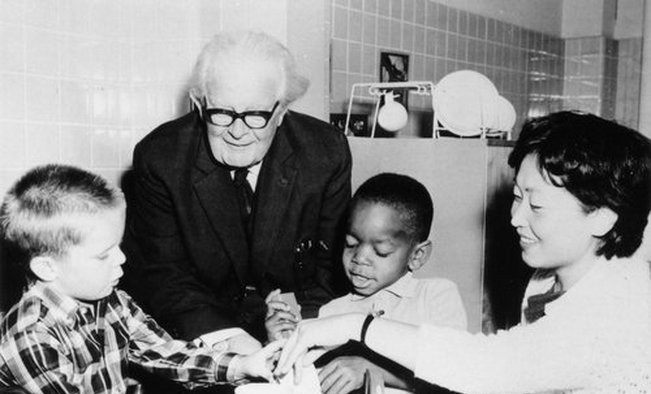
Child education - Jean Piaget!
Jean Piaget was a Swiss psychologist who created a theory of childhood cognitive development. According to Piaget, children go through four stages of cognitive development, each of which is defined by major changes in their capacity to understand and interact with their environment. Here's how Piaget's theory connects to child psychology and education:
Sensorimotor stage (birth to 2 years): Children learn about the world via their senses and actions throughout this time. Students learn about object permanence or the idea that items exist even when they are out of sight. In education, this entails allowing babies and toddlers to explore their surroundings via sensory experiences and hands-on play.
Preoperational Stage (2–7 years): At this stage, children acquire symbolic thinking and linguistic abilities. They also battle with egocentrism, or the inability to perceive things from the perspective of another person. Teachers may assist children to develop their language abilities and encourage them to consider various points of view via activities such as storytelling, role-playing, and cooperative games in the classroom.
Concrete operational stage (7 to 11 years): Children at this age learn to reason logically and recognize cause-and-effect relationships. Kids also learn to understand other points of view. Teachers may assist students to improve their logical thinking abilities via problem-solving exercises, experiments, and hands-on projects in the classroom.
Formal operating stage (over 11 years): During this period, toddlers learn to think abstractly and theoretically. They may also use deductive reasoning, which is the capacity to infer logical conclusions from a set of premises. Teachers may assist students to develop critical thinking abilities in the classroom by assigning exercises that challenge them to examine, evaluate, and synthesize material.
In essence, Piaget's theory highlights the significance of designing developmentally appropriate educational experiences for children based on their cognitive abilities and developmental stages. Educators may construct learning environments that enhance children's growth and success by knowing how they think and learn.